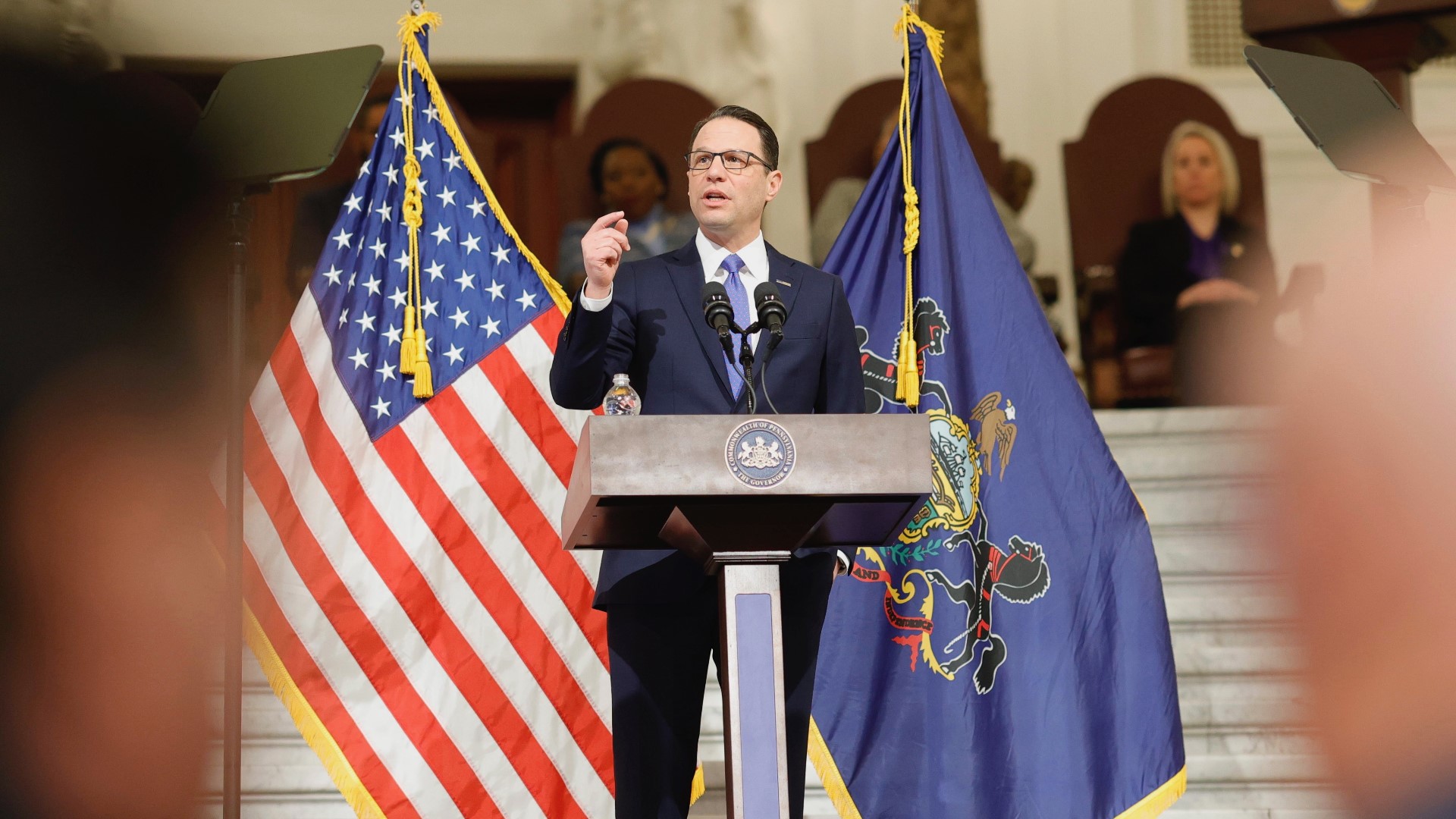HARRISBURG, Pa. — In his second budget proposal, Governor Josh Shapiro wasted no time addressing a longstanding issue in the Commonwealth.
"My budget invests $1.1 billion in new funding this year for our schools," he announced minutes into his address inside the Pa. Capitol on Tuesday.
The governor's plan introduces an additional $1.1 billion in basic education funding. Almost $900 million would come in the form of a first-year investment through a new adequacy formula. The remaining $200 million would be funneled through the Basic Education Funding Commission's fair funding formula.
It's directly in line with the BEFC's majority report, which passed on party lines. The Pennsylvania State Education Association supports that plan.
"We need to give the students the money that they need right now to give them the services they so badly need, and not do it when it's politically convenient," said Aaron Chapin, president of PSEA.
"Consider this, even if we funded every single one of the initiatives I talked about today and contained in my budget, we would still have an $11 billion surplus by the end of June 2025," Shapiro boasted.
That $11 billion figure would be down from the $14 billion surplus the state expects by the end of the fiscal year.
Republicans suggest the rate of spending is unsustainable.
"We have an independent nonpartisan economic organization called the independent fiscal office, they have projected a $3 billion deficit moving forward in our state budget," said State Sen. Kristin Phillips-Hill, a Republican who represents York County and serves as co-chair of the BEFC.
"We're going to have a deficit when we are in deficit spending right now," said State Sen. Greg Rothman, a Republican who represents Cumberland, Dauphin and Perry Counties and served on the BEFC. "I'm hoping the governor's got a plan."
FOX43 put the question to Democratic State Representative Mike Sturla, who backed the Basic Education Funding Commission's majority report the governor's budget proposal is based on.
"At the state level, we've been running surpluses now for several years and the projection is that we will continue to run surpluses. We have a $6 or $7 billion rainy day fund," said Sturla, a BEFC co-chair and a representative of Lancaster County. "In the event that that progress stalls at all, we at least have a cushion to get us through some of that."
"The administration said we're not buying into a plan where we're going to have to raise taxes, which is one of the reasons why we pushed it out seven years because they said we think that that is a reasonable rational projection," he added. "The IFO says we might not run out, we might run out of money soon. The Shapiro administration actually has projections that are more conservative than the IFO's and they believe we can do this."
No matter how much the state decides to add to its basic education funding contribution, the Pennsylvania School Boards Association said issues persist.
"When you compare increases in mandated costs, pensions, charter schools and special education, what the state contributes and what school districts pay, there's around a $4 billion difference," said Andrew Christ, PSBA senior director of education policy. "Local taxpayers and school districts are on the hook for that $4 billion. Even if we took every single dollar increase in basic education funding, over that time, we're still somewhat $2.6 billion short. That's up to local taxpayers to fill that difference."
The new budget and education spending plan faces an uphill battle.
Pennsylvania is the only state in the country with a divided house and senate.
"It's time to solve these pressing problems, to meet this moment responsibly and with bipartisan compromise," Shapiro said during his address.
"I'm going to get to work," promised Phillips-Hill. "The governor's budget address is the starting point in the process of crafting the Commonwealth's budget will take into account what the governor has requested."
There are signs the contention has already begun.
"There was some political reasons why they didn't, the majority didn't want to come up with just a report that we agreed on," Rothman recalled, speaking of his colleagues across the isle in the BEFC. "They wanted to put their points and Chairman Sturla made that clear. I don't know if it was a public meeting or executive meetings, [he said] I'm not going to sign a report that doesn't have a dollar amount it."
"We can't just say we're gonna get a consensus report that doesn't get the job done," Sturla told FOX43. "We can get to an agreement where we can say, 'This met some of the needs that the Republicans wanted, met some of the needs that we wanted, and ultimately, whether it's what we wanted or what they wanted, does it meet the needs of the kids?'"
The more time that passes, the longer Pennsylvania's inequitable and unconstitutional education funding remains.
"A lot of our school districts, they're trying to long term plan, but then those line items that they're planning to be there are being held up with the budget fights of the of the past several years," said Kevin Busher, PSBA chief advocacy officer.
Over the next few weeks, FOX43 will be addressing some of the top issues happening at public schools statewide and the ways the budget could apply to those concerns. We'll dive into aging school buildings, changing mental health needs, a prolonged teacher shortage and how charter schools fit into the equation.

